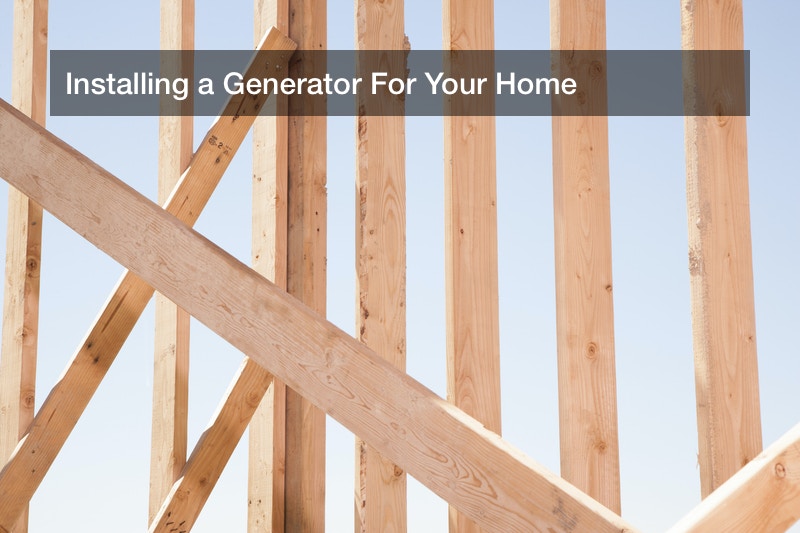
All modern American homes use electricity, and these homes are connected to either the local power grid and fueled with the local power plant, or the home has solar panels or a generator. Often, whole house generators may be used in more remote locations if need be, and generator installers can be hired to put these machines into place. In other cases, homeowners who are thinking ahead may get an emergency generator put in place, and they may go over the installation requirements before putting them in place. Generator installation can be handled by a single homeowner for a smaller and simpler model, but larger standby generators may require professional crews who can get them installed just right. What is there to know about power in the United States today and the need for a generator on the premises?
American Electricity
American homes, may they be in a city’s suburbs or in rural and remote areas, need power for the heating and air conditioning, washing machine and dryer, lighting, and more. Today, the average American household spends about 2.7% of their income on energy bills, figuring to an average of $2,000 per year. However, while modern power plants are large and can generate a lot of power, they may sometimes fail, or the electric grid’s power lines or other facilities may go bad at times. In fact, such power outages are becoming more common as time goes on, not less. Such studies on blackouts began in 1984, and the numbers show that the American electric grid loses power 285% more often than in 1984. This can be a costly disaster, and American businesses are losing as much as $150 billion per year, according to the DOE, because of these power outages. Most often, it is weather that knocks out these electric powers, such as ice storms weighing down tree branches and causing them to fall on power lines. The good news in all this is that an American household may prepare itself for such outages with a generator on hand.
Find That Generator
Like with many other categories of hardware, generators may very in price, size, and capability according to need and intended use. So, a homeowner on the market for a generator is advised to know how much power their house needs in case their main electric line is knocked out for some reason. These homeowners may contact their local power provider and have a professional visit the premises to answer this question. It may be noted that some generators may not even be used for a house, but for smaller items such as a trailer or even just a television or sound system outdoors. Smaller items may need a generator capable of just one kilowatt, or 1,000 watts. Powering an RV will take some more power, and powering an entire house will require more still. A homeowner would not want to buy a generator that can’t even provide that necessary electricity, so they should consult generator experts and have the relevant data necessary for reference.
A generator for the home will be large and take some skills and effort to install, so a customer may hire experts to help take care of this. In fact, these workers may come from the same company that provided the machine, and they can get it properly set up and connected to the home’s power utilities. If the power goes out for any reason, the generators may activate within seconds, or even less time. Some generators are designed so that they provide power the instant the home’s regular power source is cut, and there will be no interruption at all inside. This is useful for items such as computers who may be harmed by even a slight delay in their power source. Some generators may be resistant to floods, but others may be harmed or swept away, and a homeowner in a flood-prone area should be careful about this. They can explain this detail to any retailer they deal with.
Meanwhile, a smaller generator, such as one for an RV or even just a television or other portable items, can be used at a camp site. Some campers use a generator for lights and heaters or portable air conditioners in cabins, for example.
